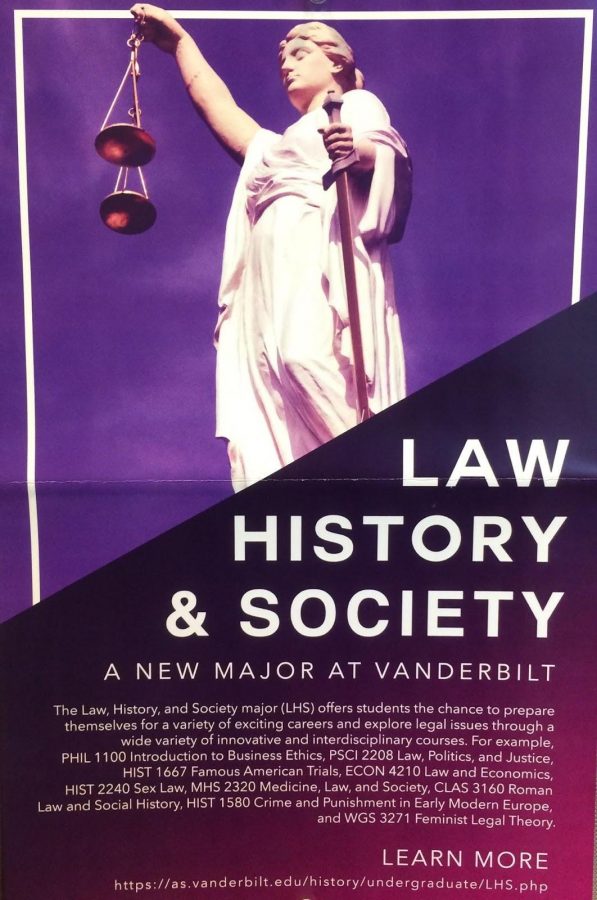As students prepare for Spring 2018 course registration, there is a new major to consider: Law, History, and Society. The interdisciplinary major is run through the History department and will comprise courses from a variety of fields.
According to Edward Wright-Rios, professor and Director of Undergraduate Studies for LHS, students have conveyed a desire for a major such as LHS. He said that with many legal historians throughout the history department, a major with a primary focus on the law would bring together the faculty’s strengths with students’ interest in the law. The LHS major is interdisciplinary and will encourage students to think critically about the historical context of law and its implications.
“A professor of mine used to say about history, in history we have to raid other disciplines for many of the theoretical and analytical tools that we use,” Wright-Rios said. “So I think interdisciplinarity is almost required these days.”
The coordinator for LHS, professor Miriam Erickson, meets with students who are interested in the major and answers any questions they may have. She echoed the importance of interdisciplinary studies and emphasized the variety of course options.
“LHS is an interdisciplinary major in that it asks students to ground themselves deeply in a particular field (in this case history) but to incorporate additional elements to create a wide ground,” Erickson said. “Interdisciplinary studies have the benefit of exposing students to a range of methods, themes, professions, etc., and putting them in a class together helps create new learning experiences for everyone.”
Posters advertising the new LHS major list courses from departments such as Philosophy, Economics, Political Science, Medicine, Health, and Society, Classics and Women’s and Gender Studies. Additionally, every LHS major will be required to take a 3000W course.
Students may not major in both history and LHS. While LHS is run through the history department, there are distinctions between the traditional History major and LHS. With a traditional history major, students develop a concentration that is often regional, whereas LHS classes could come from a variety of departments.
“You can spread yourself out over the globe and across time within the LHS major,” Wright-Rios said.
Wright-Rios said that while law school might seem for some as a natural next step for this major, students who are not considering law school can still utilize the interdisciplinary tools of the LHS major. He also emphasized that students applying to law school major in a wide range of subjects.
“Students can get engineering degrees, they can get math degrees, and they can still go to law school,” Wright-Rios said. “Law schools mostly want to know that whatever you majored in, you crushed it. And then you do the same to the LSAT.”
For students who may be interested in LHS, Wright-Rios encourages them to seek out classes that they find engaging. He said that trying out courses that students think they will enjoy is often helpful when narrowing down a major.
“Look for a course that is on a theme that is very interesting to you,” Wright-Rios said. “So for example we have a course on law and immigration in Europe if you’re interested in Europe and you’re interested in the current issues of immigration.”
Beyond taking courses for LHS, students have the opportunity to help shape the new major. Erickson encourages students to talk to LHS faculty if there is a legal studies speaker a student would like to see or an introduction course they think should be available.
“Students have more power than they think, and one of my challenges is getting students to tell me what they want to see happen, and then translating that into actionable courses, events, and activities,” Erickson said.

